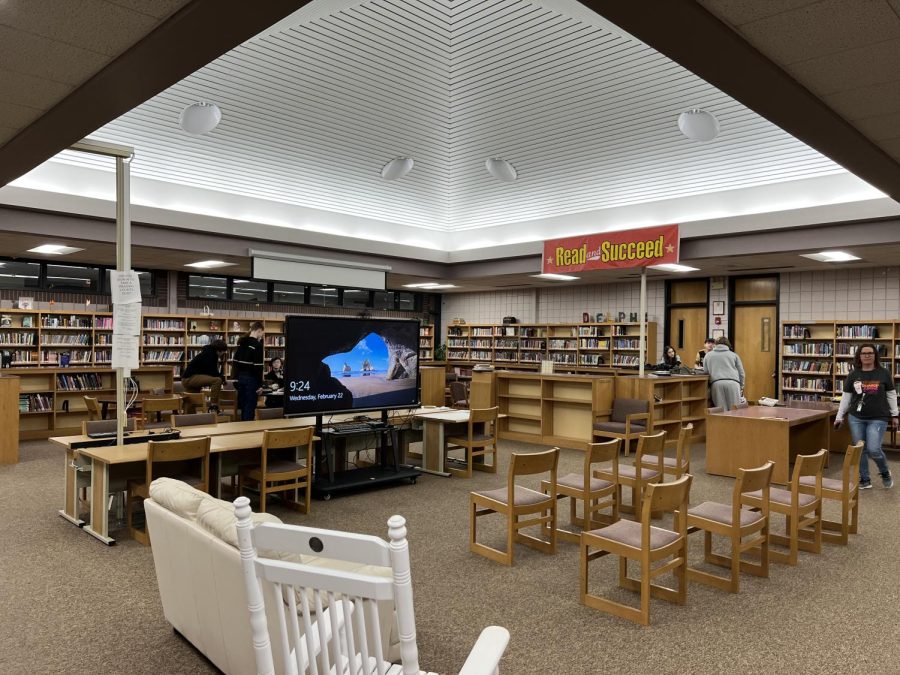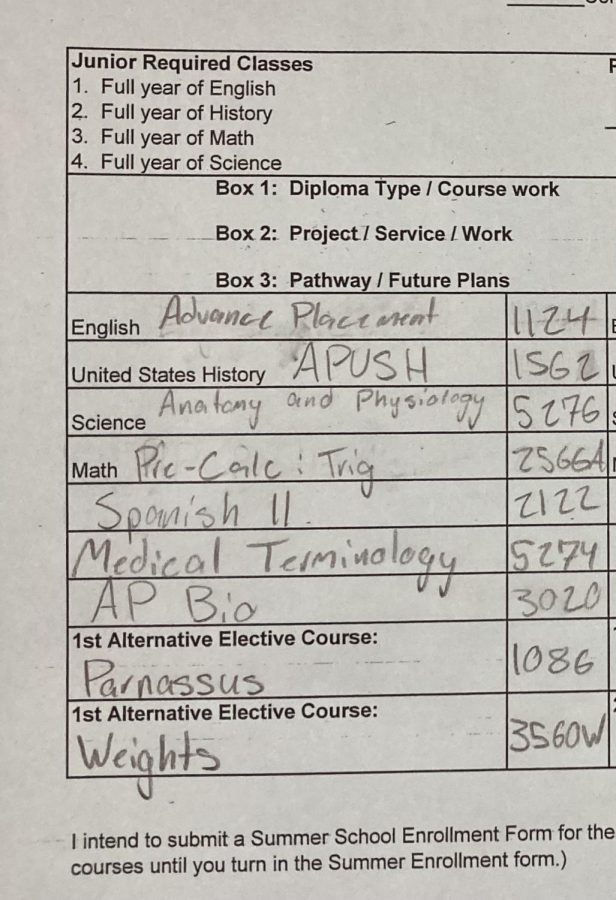Delphi Community High School has decided to enforce an existing policy for students that prohibits the use of cell phones and other electronic devices during class. This new policy is expected to increase productivity in the classroom and better the education at DCHS.
The cell phone policy states that the use of all electronic devices in the classroom is prohibited, though the use of these devices is allowed if specified by the individual teacher. If a student is caught using a device during class, it will be confiscated and taken to the office, where the student’s parents will later have to retrieve it.
Cell phones and other electronic devices can be accessed during passing periods and lunch, but the student may not use the device once they are in the classroom, even if it is still a passing period.
Other local schools have already gone to this kind of policy, including Twin Lakes High School in Monticello, which has an electronic device policy that is very similar to Delphi’s.
When asked why the policy is now being enforced, Mr. Trebley, principal, stated, “The school is responsible for effective learning environments and to decrease any and all types of distractions to learning for students.”
Many staff members and students are for this change and believe it will only help, not hurt, our learning experience at DCHS. Chelsea Anderson, senior, said, “I personally think it was a tremendous idea to prohibit cell phones in classrooms. It’s less of a distraction for students and teachers.”
Mr. Barry, English teacher, stated, “While I am generally against policies that ban anything as I am a fan of teaching appropriate use rather than abstinence, this policy has been implemented in a way that it does not hamper my classes’ access to the technology we utilize.”
However, there are also some who are still not completely sure about the policy. Braden Kemp, senior, stated, “I feel that if you get your phone taken away, it should be given back at the end of the day instead of having your parents retrieve it.”
Mrs. Tonsoni, English teacher, stated, “I’m glad that teachers still have the freedom to allow phones as they deem fit. We need to teach students how to use their phones for educational purposes, but also how to function in an educational environment with their phones.”
This policy will likely limit the amount of disruption in the classroom, lessen the amount of cheating, increase participation, and raise grades for students.
In the past, students and teachers have had to deal with the constant interruption that cell phones have brought to the classroom. This was not only a distraction to students, but also to the teachers when on a daily basis they had to tell students to put their phone away.
Cheating has also been a major problem brought by cell phones. Students could take pictures of the information they needed for a test with the phone and use them to cheat.
The policy may also increase the amount of participation in the classroom which could in turn improve grades. Without the continual disruption electronic devices bring, students are better able to pay attention to the lesson being taught without the urge to check their phone due to the risk of being caught.
While there will always be those students who go against the rules and still use their phones where they are prohibited, the enforcement of this policy has already shown the difference an electronic device free zone can make. Students seem more aware of what is going on in the classroom and have become more involved in the lessons.
“Creating effective learning environments will increase opportunities for all students to learn at high levels,” stated Mr. Trebley on the benefits of enforcing the policy.
“The flexibility given to teachers to determine what uses are educational was paramount to the success of this policy and our administration deserves credit for their foresight in understanding that critical issue,” said Mr. Barry on the teachers’ ability to allow technology in the classroom as needed.
Anderson agrees with the policy and is also pleased with the results it has already made. “Not having cell phones in class has made class time a better learning environment for me and hopefully for others.”

















